Brain Injury From a Car Accident in Ontario, Canada
Guide to Reporting a Brain Injury From a Car Accident in Ontario, Canada
Brain injuries can be a devastating result of car accidents in Ontario. Even minor collisions, such as fender benders and low-speed impacts, can cause brain injury due to how the head is impacted during an accident.
Brain injury from car accidents may present symptoms ranging from mild confusion to permanent disability or even death. Knowing the risks and common signs of brain injury after a crash is essential for anyone involved in an auto collision to ensure their safety and well-being.
In this webpage, we’ll examine the consequences of a car accident in Ontario, causes of brain injuries from car accidents, how to identify signs of brain injury, types of brain injuries caused by auto collisions, symptoms associated with these types of brain injuries and ways to deal with any resulting swelling or inflammation following an incident.

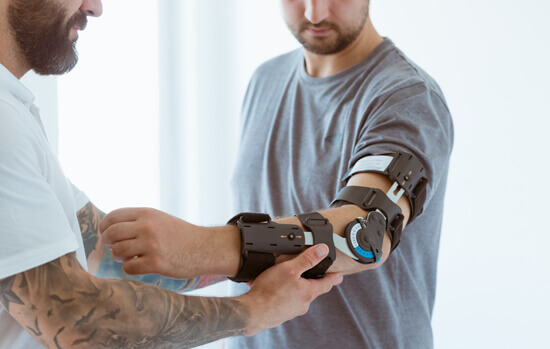
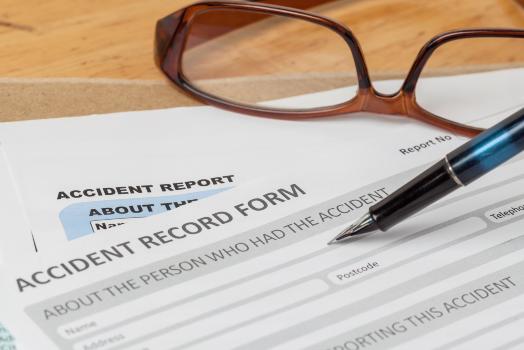
Causes of a Brain Injury from a Car Accident in Ontario, Canada
Most Common Causes of a Brain Injury from a Car Accident in Ontario, Canada
You may be shocked when you are in a car accident in Ontario. You may be hurt, and you may be panicked. You may be confused. And, most importantly, you may be injured. Injuries can range from bumps and bruises to serious head injuries.
In Ontario, car accidents are a leading cause of brain injury. According to a report from the Brain Injury Association of Canada, every year, brain injury is the major cause of death for people between the ages of 15 and 44.
The most common source of brain injury in car accidents is colliding with another vehicle. Other causes of brain injury in car accidents in Ontario can include being struck by a pedestrian, being ejected from the vehicle, or being in a car accident involving a drunk driver.
There are many causes of brain injury from a car accidents in Ontario. Some of the most familiar causes of brain injury in Ontario include the following:
- Head trauma caused by impact with the windshield, side window, or roof of the car
- Loss of consciousness or coma as a result of the car accident
- Brain bleeding or concussion as a result of the accident
- Injuries to the neck or spine that cause Traumatic Brain Injury
- Contact with the airbag
- Contact with the steering wheel or dashboard
- Contact with other vehicles or objects
- When a car hits a tree or other object, the force of the impact can cause the head to hit the windshield or dashboard.
- If you are driving too fast, you are more likely to hit another car or an object. This can cause the head to hit the windshield or dashboard.
- If you make an incorrect lane change, you may hit a car or object in the other lane. This can cause the head to hit the windshield or dashboard.
- If you collide with another car, the force of the impact can cause the head to hit the windshield or dashboard.
- Other forces, like being dragged out of the car, can cause the head to hit the windshield or dashboard.
If you are damaged in a car accident, don’t try to take care of yourself. Call for help and stay calm. You may need medical help to recover from a TBI. In case of a car crash in Ontario, don’t hesitate to get in touch with our suggested lawyer. a professional lawyer can help you get the compensation you deserve.



Types of Brain Injuries From Car Accidents in Ontario, Canada
The Many Different Types of Brain Injuries From Car Accidents in Ontario, Canada
Car accidents are common occurrences in Ontario, with many resulting in some form of brain injury. Traumatic brain injuries are a serious risk and can have long-term effects on an individual’s physical and psychological health.
It is important to acknowledge the different types of brain injuries resulting from car accidents to recognize early symptoms and seek appropriate medical treatment.
Car accidents are a major cause of trauma and death in Ontario. In Ontario, many brain injuries can occur from car accidents.
Some of the most common brain injuries from car accidents include:
- Traumatic brain injury (TBI) is the most common type of brain injury after car accidents. TBI is a traumatic injury to the brain that can cause serious damage to the brain. Symptoms of a TBI can include:
- Amnesia
- Confusion
- Memory loss
- Seizures
- Impairment in cognition (thinking abilities)
- Inability to think or move properly
- Difficulty speaking
- Severe headaches
Most TBIs result from a traumatic event, such as a car accident, and TBIs can be fatal if not treated quickly.
- Spinal cord injury (SCI) is another brain injury that can occur after car accidents. SCI is an injury to the spinal cord that can cause paralysis. Symptoms of an SCI can include:
- Paralysis from the neck down
- Loss of sensation below the injury
- Inability to move the arms or legs
- Difficulty breathing
SCIs can be fatal if not treated quickly.
- Brain stem injury (BSI) is another type of brain injury that can occur after car accidents. BSI is an injury to the brainstem that can cause serious damage to the brain. Symptoms of a BSI can include:
- Severe headache
- Loss of consciousness
- Difficulty breathing
- Persistent nausea and vomiting
- Inability to move the arms or legs
BSIs can be fatal if not treated quickly.
- Coma is a condition in which a person is unconscious and has no awareness of their surroundings. Coma can be caused by various brain injuries, including TBI, SCI, and BSI.
- Concussions: This type of mild traumatic brain injury (TBI) occurs when the brain is shaken or jolted inside the skull. It can also occur from a fall or damage to the body that causes the head and brain to move quickly back and forth. Symptoms of a concussion can include headache, confusion, memory loss, and difficulty concentrating.
- Contusions: This type of brain injury occurs when there is a direct impact on the head, resulting in bleeding and swelling of the brain. Discolorations can be mild or severe and lead to long-term neurological problems.
- Diffuse axonal injury (DAI): This type of brain injury occurs when the brain is shaken or rotated rapidly, causing damage to the brain’s axons (the nerve fibres that connect different parts of the brain). DAI can lead to a loss of consciousness, coma, and permanent brain damage.
- Hematomas: This type of brain injury occurs when there is bleeding within the skull. Hematomas can be caused by skull fractures or tears in the blood vessels in the brain. They can lead to serious neurological problems if left untreated.
- Penetrating injuries: This type of brain injury occurs when a piece pierces the skull and enters the brain. Penetrating injuries can be caused by bullets, knives, or other sharp objects. They can lead to serious neurological problems or death.
You should contact a doctor promptly if you notice any of the symptoms mentioned above. Please get in touch with a lawyer if you or someone you know has been injured in a car accident. a lawyer can help you obtain the compensation you deserve for your injuries.


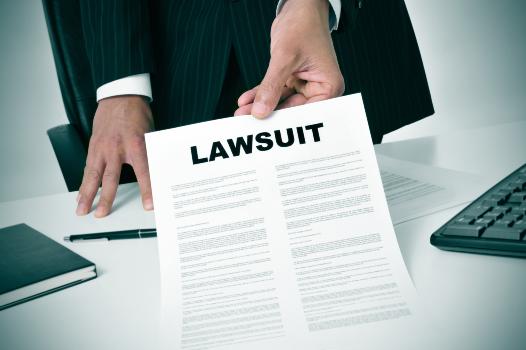
Symptoms of a Brain Injury From a Car Accident in Ontario, Canada
A Breakdown of the Symptoms of a Brain Injury From a Car Accident in Ontario, Canada
In most cases, the symptoms of a brain injury will appear gradually. They may only be noticeable days, weeks or even months after the accident. However, some people may experience short-term or immediate effects.
If you or someone you know has been injured in a car accident in Ontario, be aware of the following brain injury symptoms.
Here are some common brain injury symptoms and what you can do to help ease them:
- Trouble concentrating or making decisions
This may be because of a variety of aspects, including a disturbance in mood, memory or thinking. If you experience this after a car accident, getting your bearings and figuring out what to do may be challenging. - Trouble thinking clearly
After a car accident, it can be difficult for people to think clearly. They may need help concentrating, making decisions, and remembering important information. - Trouble with vision or hearing
Car accidents can be traumatic experiences, and the aftermath can leave lasting effects. One potential consequence of a car accident is having difficulties with vision or hearing. - Feeling Lethargic or Weak
It is not uncommon for individuals involved in a vehicle accident to experience physical and emotional symptoms afterwards. Feeling lethargic or weak can directly result from the trauma experienced during an Ontario car accident. These symptoms can create difficulty functioning in everyday life. - Feeling dizzy or lightheaded
An automobile accident can be a jarring and frightening experience. - Trouble sleeping
This may be due to various factors, including a persistent headache, PTSD or a general feeling of unease. If you experience this after a car accident, getting the sleep you need to recover can be hard. - Feeling dizzy or lightheaded
After a car accident, feeling dizzy or lightheaded is a common physical symptom. - Trouble with language and communication
Car accidents can leave lasting effects on the brain. One such consequence is difficulty with language and communication. This could involve trouble speaking in full sentences or understanding conversations around you. - Problems with headaches
Post-accident headaches can be common and persistent, caused by car accidents or swelling in the brain. Experience a headache after a car accident. It may be wise to speak to your doctor about treatment options. - Memory problems
This may be due to a disturbance in memory, thinking or reaction time. People may experience problems with their memory after a car accident. They may have trouble recalling what happened during the accident, or they may have difficulty organizing their thoughts. Experience this after a car accident. It may be difficult to remember what happened or to recall specific details from the event. - Changes in mood
This may be due to a variety of factors, including a feeling of intense sadness, confusion or anger. If you experience this after a car accident, it can be hard to cope with the aftermath. - Changes in movement
This may be due to a disturbance in movement, balance or coordination. After a car accident in Ontario, people may experience problems with their actions. They may need help walking, sitting, or standing and have difficulty moving their arms, legs, or neck.
If you or someone you know is experiencing any of the above symptoms, please don’t hesitate to seek help. Many resources are available to those affected by a car accident, including community centres, hospitals and doctors.

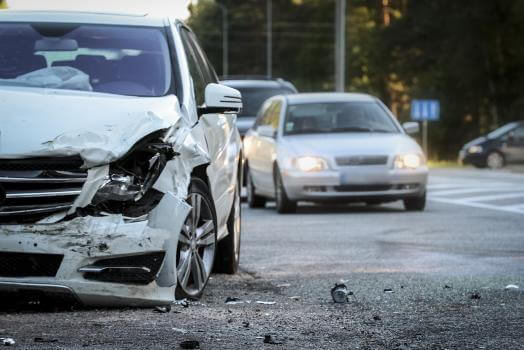

Common Brain Injuries From Car Accidents in Ontario, Canada
The Most Common Brain Injuries from Car Accidents in Ontario, Canada
When it comes to car accidents, many different types of injuries can happen in Ontario. However, the most common injuries occur to the head, neck, and spine. In fact, according to the Insurance Bureau of Canada, these are the most common injuries in car crashes in Ontario.
However, there are other injuries too which can happen. In fact, the most common injuries from a car crash in Ontario are:
- Head injuries: If you’re hit head-on, you’re more likely to suffer a brain injury. You’re more likely to suffer a spinal cord injury if you’re hit from the side.
- Neck injuries: If you’re thrown out of the car, you’re more likely to suffer a neck injury.
- Spinal cord injuries: If you’re thrown out of the car, you’re more likely to suffer a spinal cord injury.
- Ankle and foot injuries: If you’re thrown out of the car, you’re more likely to suffer ankle and foot injuries.
- Chest and rib injuries: If you’re thrown out of the car, you’re more likely to suffer chest and rib injuries.
- Pelvic injuries: If you’re thrown out of the car, you’re more likely to suffer pelvic injuries.
- Arm injuries: If you’re thrown out of the car, you’re more likely to suffer arm injuries.
- Hand injuries: If you’re thrown out of the car, you’re more likely to suffer hand injuries.
- Head and neck injuries: If you’re not thrown out of the car, you’re more likely to suffer a head and neck injury. These injuries can include concussion, whiplash, and spinal cord damage.
- Back injuries: If you’re not thrown out of the car, you’re more likely to suffer a back injury. These injuries include herniated discs, vertebrae, and spinal cord damage.
- Foot Injuries: If you’re not thrown out of the car, you’re more likely to suffer foot injuries. These can include broken bones, sprains, and strains.
There are many other injuries which you can face after a car crash in Ontario. Injuries may include leg injuries, cervical spine injuries, thoracic spine injuries, lumbar spine injuries, shoulder injuries, elbow injuries, wrist injuries, hip injuries, cranioencephalic injuries and ankle injuries.
You should seek immediate medical attention if you’re injured in a car crash in Ontario. There’s a good chance you’ll be hospitalized for a while and need surgery. In addition, you may have to undergo physical therapy to help you recover from your injuries.
You may also be entitled to financial compensation after a car crash in Ontario. You may be able to file a personal injury claim against the person or company that caused the car crash.

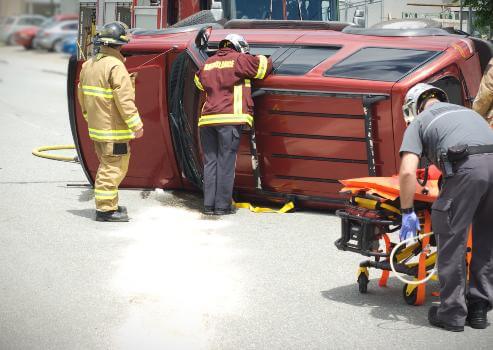

Brain Swelling From a Car Accident in Ontario, Canada
Managing Brain Swelling From a Car Accident in Ontario, Canada
If you have ever been in a car accident, you know that it can be a terrifying experience. For many, the fear of being in a car accident is enough to make them stay away from cars altogether. However, for some people, the fear of a car accident can be so great that mere thought can cause their brains to swell.
Brain swelling is a common and temporary complication following a car accident. It is caused when pressure builds up inside the skull as a result of the accident, and this pressure can cause brain tissue to swell and pressure brain arteries and veins.
Brain swelling usually develops rapidly and can peak within hours or days following a car accident. The pressure inside the skull can cause serious damage to the brain, including:
- Injuries to the brain itself
- Injuries to the nerves that connect the brain to the rest of the body
- Lacerations to the brain
Brain swelling is usually a result of blunt-force injuries. This includes head, neck, and spine injuries, and it can also result from car accidents involving objects such as trees or poles.
Although brain swelling is common following a car accident, it is dangerous. If the pressure inside the skull becomes too high, it can cause serious brain damage.
If you experience any of the following symptoms, you should contact a doctor immediately:
- Severe headache
- Visual changes (such as blindness, paralysis, or seizures)
- Severe confusion
- Fainting
Brain swelling is a serious injury and should be taken seriously. You should consult the doctor if you feel any symptoms mentioned above. If you are injured in a car accident, you should contact a lawyer as soon as possible. a lawyer can help you get the best possible legal representation and can help you to get the compensation you deserve.
Car accidents in Ontario can cause serious injuries, including brain swelling. It is important to seek medical attention immediately if you experience any symptoms associated with brain swelling. Additionally, it’s important to contact a lawyer for more information and assistance in filing a personal injury claim. Brain injuries are serious and have long-term effects, so getting the best possible legal representation is essential to ensure that you are properly compensated for your injuries.
Remember, no matter how small the collision may seem, it is always recommended to contact a lawyer and seek medical help to ensure that any potential brain injury is addressed immediately.
*The laws pertaining to automotive injuries are complex and are constantly evolving. The information on this website was not written by legal professionals and should not be considered legal advise. Please contact a professional personal injury lawyer serving Ontario for the most up to date and accurate information.






